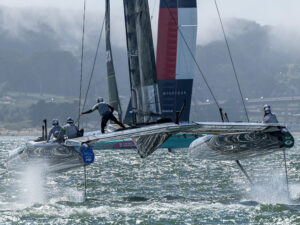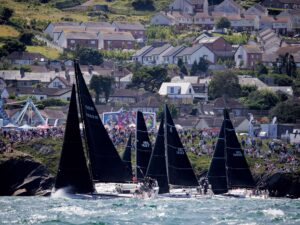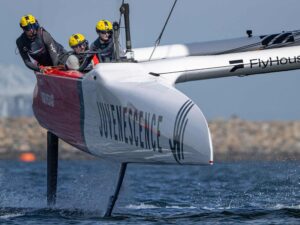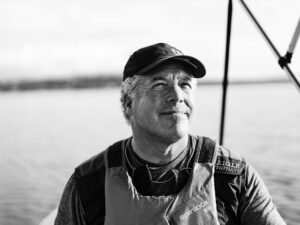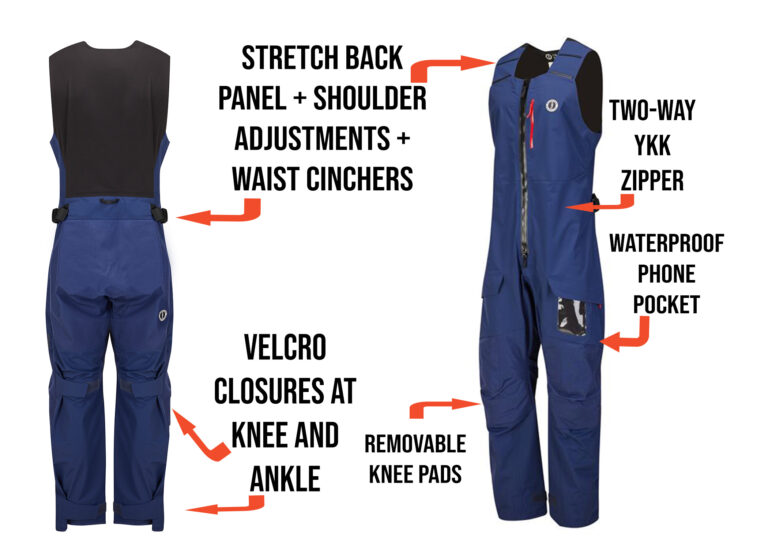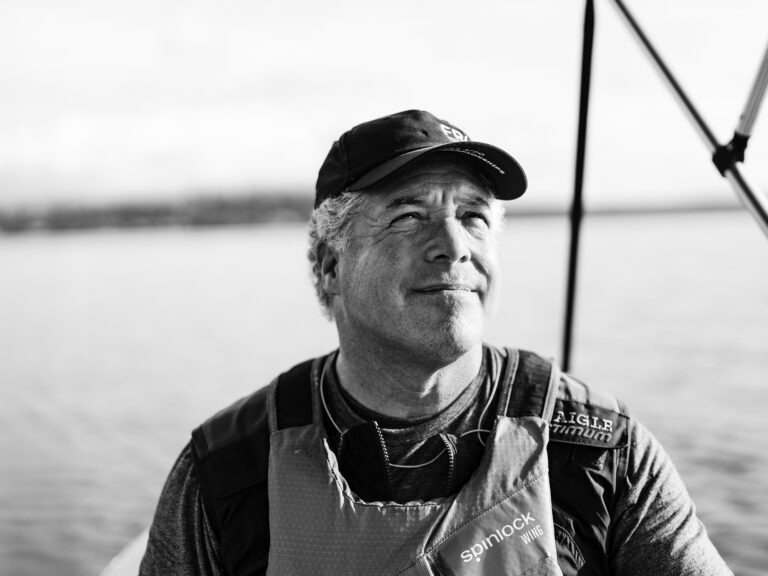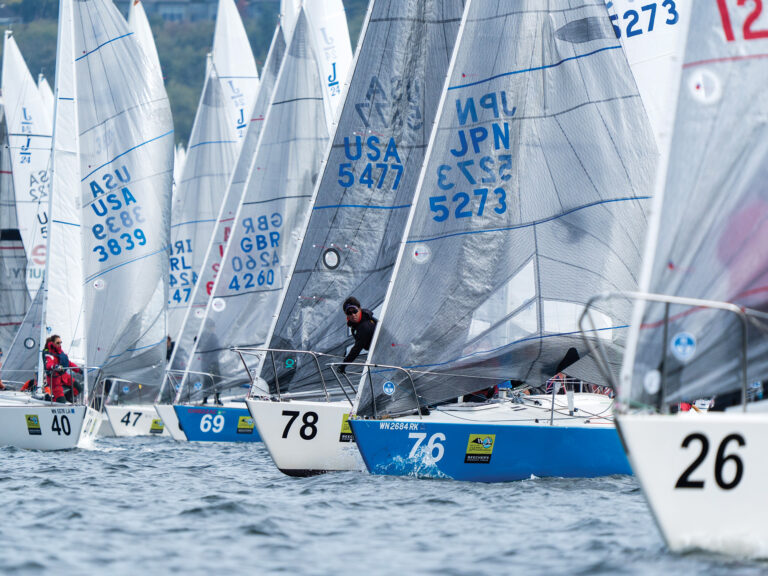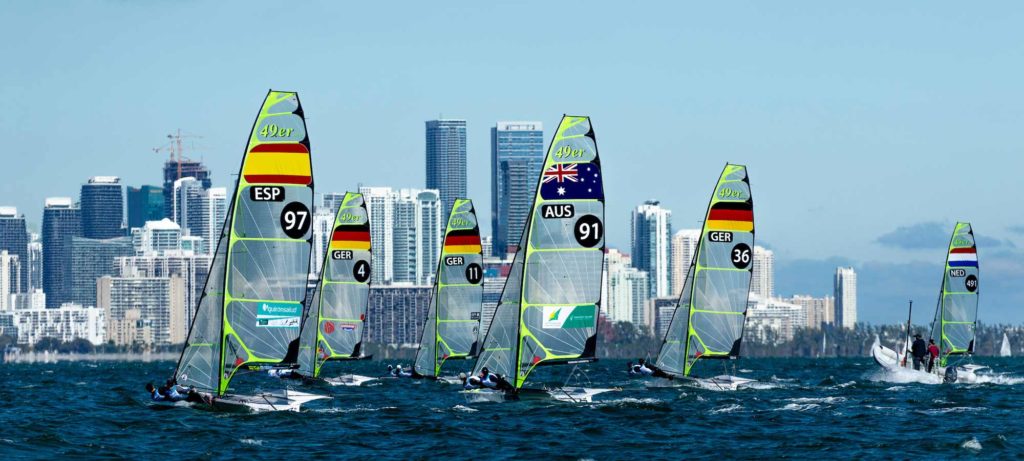
While the next Olympic regatta is 18 months away, the competition for the Olympic berths has reached a zenith. National teams are in the midst of a pitched battle for the limited country berths in each of the 10 classes, and individual athletes are sharpening their game in preparation for their respective country’s Olympic qualifying. Each nation can send a maximum of one athlete or team per class.
For 30 years, Biscayne Bay and Miami have been an important stop on the Olympic-class circuit. This year is no different. Among the 650 athletes, from 60 countries, are numerous Olympic medalists and world champions. The opening series for each class starts on Tuesday, January 29. The top 10 athletes or teams in each class will advance to the double-points medal race on Saturday, February 2, or Sunday, February 3. The Medal Races will be streamed live to a Jumbotron in Regatta Park. The public is encouraged to come watch the sailing while enjoying the Hempel World Cup Series Miami Festival including food trucks and the US Sailing Education Zone. It promises to be a great day for the whole family.
All the athletes and regatta operations for the 2019 Hempel World Cup Series Miami will be based out of Regatta Park and Coconut Grove Sailing Club. This facility is one of the finest onshore regatta venues in the United States with ample space for the athletes and event staff. The park is open to the public during the regatta and people are encouraged to visit Regatta Park and see current and future sailing heroes before or after racing.
Domestic Storylines
This regatta is a qualifier for the 2019 Pan American Games, an important step for many Western Hemisphere Sailors looking toward the Tokyo 2020 Games. The 2019 Pan Am Games will take place July 26 to August 11 in Lima, Peru.
The event is the second of two selection regattas for the 2019 US Sailing Team. Each American sailor and team that places in the top 10 in their respective fleets will qualify to officially represent the country as a member of the US Sailing Team.
In the Laser Radial class, a pair of South Florida natives are laser focused on a top finish here and the inside track for the U.S. berth in Enoshima. Paige Railey (Clearwater, Fla.) is a two-time Olympian and has been a top competitor in the class since winning the 2005 Laser Radial World Championship. Erika Reineke (Fort Lauderdale, Fla.) is 12th in the world rankings, one spot behind Railey. Reineke, the 2018 US Sailing Rolex Yachtswoman of the Year, has finished as high as sixth in the Laser Radial World Championships. Both struggled here last year, and each will be looking for a much stronger finish to start this critical year of racing.
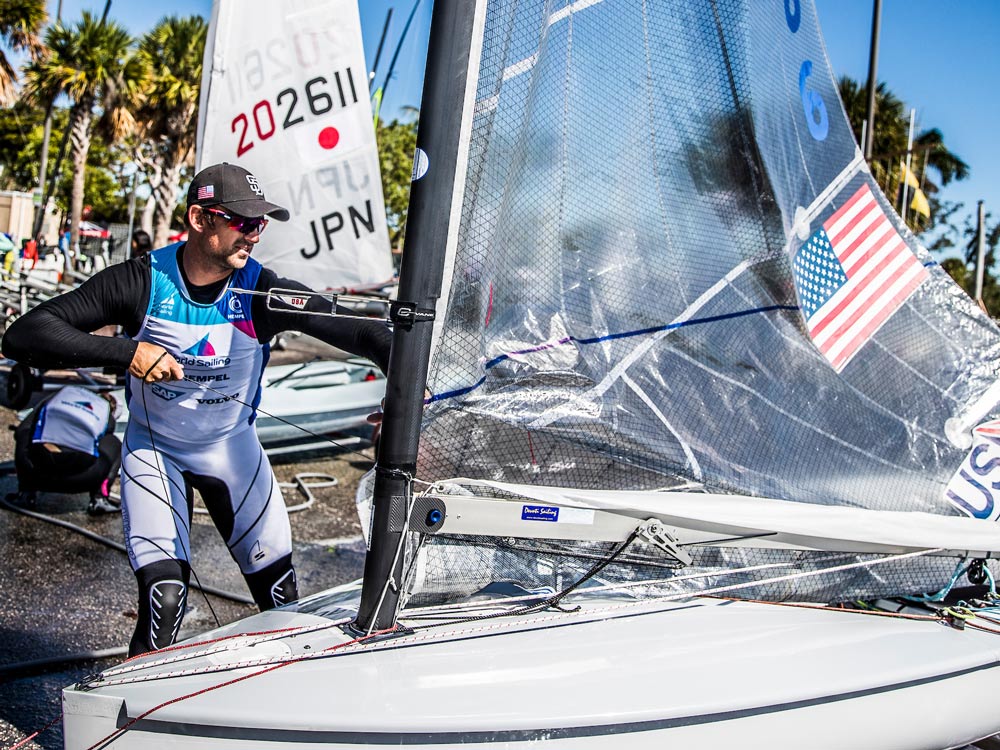
Other South Florida sailors competing include Ravi Parent (Sarasota, Fla.) in the Nacra 17 class and Luke Muller (Fort Pierce, Fla.) in the Finn class.
Caleb Paine (San Diego, Calif.) won the only sailing medal for the U.S. team in Rio 2016, a bronze in the Finn class. He finished second in Miami last year, but was unable to crack the top three in the other big events in 2018. With the Finn class not currently on the Olympic roster for 2024, the Enoshima 2020 regatta could be Paine’s last chance for an Olympic medal.
After back-to-back wins in the 420 class in the Youth World Sailing Championships, 18-year-old twins Carmen and Emma Cowles (Larchmont, N.Y.) will make their Hempel World Cup Series debut this week. Unlike many other classes, where there is an established pecking order among the U.S. competitors, the Women’s 470 class is fairly wide open in terms of which team will earn the U.S. berth for the Enoshima 2020 Games. The Cowles twins have shown the ability to shine in big events, but the 470 is a notoriously challenging boat to learn, and they have a steep learning curve to climb.
International Storylines
The 49erFX team of Martine Grael and Kahena Kunze (BRA) have won twice before in Miami, in 2013 and 2017. They won gold at Rio 2016 and missed out competing last year as Grael was sailing in the Volvo Ocean Race. Grael is the daughter of five-time Olympic medalist and Volvo Ocean Race champion Torben Grael.
Argentina’s Santiago Lange overcame lung cancer to win gold at Rio 2016 with Cecillia Carranza Saroli in the Nacra 17 class. The class has added lifting foils for this Olympic cycle, making the catamaran faster and more demanding. But Lange, now 57, is one old dog who can learn a new trick. The pair won silver in Miami one year ago and placed third at the 2018 Hempel Sailing World Championships in Aarhus, Denmark. Toyko 2020 would be Lange’s seventh Olympic regatta.
Enrique Figueroa is Puerto Rico’s most successful sailor, representing the Caribbean island in the Tornado class at four Olympic Games from 1988 to 2004. He has claimed four Pan American Games gold medals as well as two Central American and Caribbean Games golds. He is now competing in the coed Nacra 17 class with Gretchen Ortiz and looking to qualify for his fifth Olympic regatta.
Marit Bouwmeester (NED) was the first athlete to be named for Tokyo 2020 after she won gold in the Laser Radial at the 2018 Hempel Sailing World Championships in Aarhus, Denmark. Bouwmeester is hoping to defend the gold medal she won at Rio 2016.
Peru’s Maria Belen Bazo is a South American Windsurfing Champion and a Youth Olympian. The Women’s RS:X sailor is targeting gold at her home Pan American Games and is using Miami to prepare for the competition.

